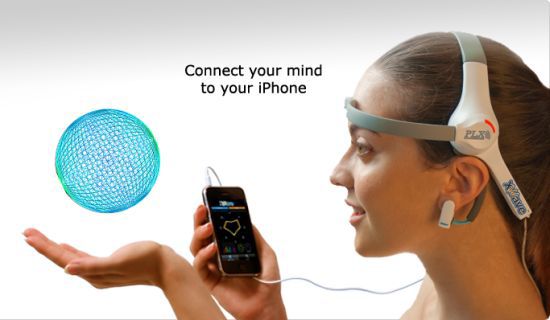Contactless communication

On December 3, 1992, an event occurred that marked the beginning of one of the most significant phenomena in the field of information transfer - the world's first SMS was sent. Due to its convenience and cheapness, as well as unobtrusiveness compared to voice communication, SMS has become the most popular way to communicate. Actually, the ability to send low-cost short text messages has become one of the most important reasons for the popularization of cellular communication among the widest segments of the population.
The SMS palm held until very recently, until the massive spread of Wi-Fi made the possibility of using mobile versions of various instant messengers widely available. Of course, this cannot but upset cellular operators, since SMS brought and still brings them huge profits, despite the dismal pace of its fall. However, the further spread of Wi-Fi access points in cities is gradually crowding out SMS to the “verge” of information exchange.
')

Something similar happened, in due time, with e-mail. Being an instantaneous speed analogue of “warm tube” paper mail, “soap” was for some time the main way to communicate on the network. So far, the inherent disadvantages of this method of communication have not led, ultimately, to the emergence of such a phenomenon as an instant messenger.
By the way, the availability of mobile Internet has become fertile ground not only for instant messengers, but also for Twitter. However, the uniqueness of the very fact of the existence of this service is that its popularity was made possible only due to the existence of SMS. It is the habit of writing short phrases and limitations on the length of the message that became the foundation for the formation of this, hand on heart, inherently ridiculous service like Twitter. Well, the ubiquitous, like cockroaches, Wi-Fi and the reduction of tariffs for the mobile Internet have only consolidated its popularity.

The demand for instant messengers as a way of mobile data exchange has led to the fact that they have become actively interested in business sharks. Skype was bought by Microsoft, the Japanese Rakuten Group, one of the ten largest Internet companies, recently announced that it was buying Viber. Everything suggests that in the near future we can expect "messenger wars" when the owners of various services begin to actively fight for an increase in the customer base. And if another 10 years ago, the “messenger” almost unambiguously implied ICQ (thanks to its widespread prevalence), then today the “biosphere” of such applications is much more diverse.
Next step
Despite the described changes in the tools and communication environments, all this, by and large, can be called an exchange for soap. The essence does not change - people still type short phrases on the keyboard, mechanical or virtual. If you look even wider, then, despite the enormous scientific and technical progress, in the field of communication nothing has changed since the invention of writing. To convey information to another person, we need to use speech or letters. In fact, all the achievements of mankind in the form of telegraph, telephone, automatic pens, cellular communications and electronic means of communication are, in fact, “upgrades” for the two single ways of communication. This is what is called true universal human values.

In recent years, news of success in mental control has increasingly come. We are learning more and more about how the activity of certain parts of the brain changes depending on our intentions and physical activity. With the help of a touch device that wears on the head, we have already learned how to control a flying drone :
Scientists are working hard to create a new channel of information transfer, directly from the brain , bypassing the speech apparatus and limbs. Electrical impulses generated by the brain of one person and recorded using electroencephalography, were transmitted to the brain of another person who performed the imaginary movements of the first. Now at a very affordable price a head-mounted device is sold that can recognize several simple emotional states . Congratulations, we live in an era of scientific telepathy.
Brave new world
It seems to me that the day is near (well, not too far) when a compact device will be created that allows you to recognize not only motor impulses and emotions. Formally, you can register any brain activity. The main problem is the correct interpretation and decoding. Indeed, it is one thing to understand that a person wants to raise his right hand, and quite another to recognize that he imagines a green apple.
Most likely, you will have to learn how to transmit your thoughts with the help of the first device that can do this. I believe that for this you will need to think of some simplified visual images. It is even possible that a certain card file of standard images will be compiled, with a combination of which it will be possible to transmit my thought as a whole. A peculiar language of thought , if you will. This read information in the form of text or images can be sent not only to other people, but also to cloud storage.

Implantation of a neural interface that can more fully capture the thoughts of a person can be a completely different way of implementing contactless communication . In particular, today it is one of the promising ways to return to the paralyzed people and people with disabilities some opportunities for interacting with the environment. However, in this context we are not talking about the full reading of thoughts, but only about the same registration of "motor" activity.
But will it ever come down to full communication only by the power of thought? Hard to say. Apparently, in the depths of military research centers, such developments have progressed much further than is known to the general public. Such a conclusion suggests itself from the reports on the possible timing of the emergence of consumer civilian devices. But this area is EXTREMELY interesting in the first place to the military departments. So, it is possible to expect the appearance of the first commercial implantable chips, thanks to which a person will be able to control home appliances with the power of thought and type texts on a computer, by 2020. So it’s too early for us to relax and forget the skills of “blind” typing.
Source: https://habr.com/ru/post/213647/
All Articles